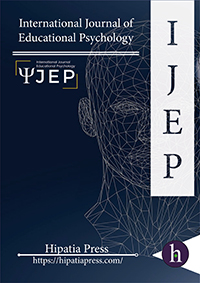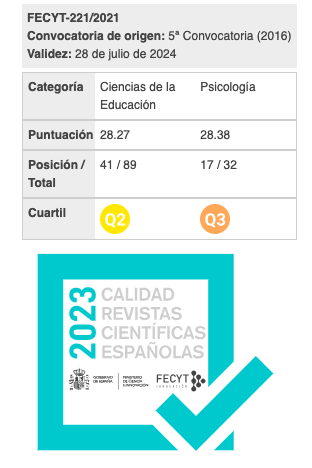Can Collaborative Knowledge Building Promote Both Scientific Processes and Science Achievement?
Keywords:
Downloads
Abstract
This study investigated the role of collective knowledge building in promoting scientific inquiry and achievements among Hong Kong high-school chemistry students. The participants included 34 Grade 10 (15-16 years old) students who engaged in collective inquiry and progressive discourse, using Knowledge Forum@, a computer-supported learning environment. A comparison class of 35 students also participated in the study. The instructional design, premised on knowledge-building principles including epistemic agency, improvable ideas and community knowledge, consisted of several components: developing a collaborative classroom culture, engaging in problem-centered inquiry, deepening the knowledge-building discourse, and aligning assessment with collective learning. Quantitative findings show that the students in the knowledge-building classroom outperformed the comparison students in scientific understanding with sustained effects in public examination. Analyses of knowledge-building dynamics indicate that the students showed deeper engagement and inquiry over time. Students’ collaboration and inquiry on Knowledge Forum significantly predicted their scientific understanding, over and above the effects of their prior science achievement. Qualitative analyses suggest how student’s knowledge-creation discourse, involving explanatory inquiry, constructive use of information and theory revision,can scaffold scientific understanding.Downloads
References
Bereiter, C. (2002). Education and mind in the knowledge age. Mahwah, NJ: Lawrence Erlbaum Associates.
Google Scholar CrossrefBereiter, C. & Scardamalia, M. (2010). Can children really create knowledge? Canadian Journal of Learning and Technology, 36 [1].
Google Scholar CrossrefBereiter, C., Scardamalia, M., Cassells, C., & Hewitt, J. G. (1997). Postmodernism, knowledge-building and elementary science. Elementary School Journal, 97, 329-340.
Google Scholar CrossrefBurtis, J. (1998). The Analytic Toolkit. Ontario Institute for Studies in Education, University of Toronto: Knowledge Building Research Team.
Google Scholar CrossrefCaswell, B. & Bielaczyc, K. (2001). Knowledge Forum: Altering the relationship between students and scientific knowledge. Education, Communication and Information, 1, 281-305.
Google Scholar CrossrefChan, C.K.K. (in press, 2012). Collaborative knowledge building: Towards a knowledge-creation perspective. In C. Hmelo-Silver, C.A. Chinn, C.K.K. Chan, & A. O’Donnell (Eds.), The international handbook of collaborative learning. Routledge.
Google Scholar CrossrefChan, C.K.K., & Chan, Y.Y. (2011). Students’ views of collaboration and their online participation in Knowledge Forum. Computers & Education, 57, 1445-1457.
Google Scholar CrossrefChan, C.K.K. (2008) Pedagogical transformation and knowledge building for the Chinese Learner. Evaluation and Research in Education, 21, 235-251.
Google Scholar CrossrefChan, C.K.K., Burtis, J., & Bereiter, C. (1997). Knowledge building as a mediator of conflict in conceptual change. Cognition and Instruction, 15, 1-40.
Google Scholar CrossrefChinn, C. A., & Malhotra, B. A. (2002). Epistemologically authentic reasoning in schools: A theoretical framework for evaluating inquiry tasks. Science Education, 86, 175-218.
Google Scholar CrossrefDe Jong, O., & Taber, K. S. (2007). Teaching and learning the many faces of chemistry. In S.K. Abell & N. G. Lederman (Eds.), Handbook of research on science education (pp.631-651). Mahwah, NJ: Lawrence Erlbaum Associates.
Google Scholar CrossrefHakkarainen, K. (2004). Pursuit of explanation within a computer-supported classroom. International Journal of Science Education, 26, 979-996.
Google Scholar CrossrefHakkarainen, K., Lipponen, L. & Jarvela, S. (2002). Epistemology of inquiry and computer-supported collaborative learning. In T. Koschmann, R. Hall, & N. Miyake (Eds.), CSCL2: Carrying forward the conversation (pp. 11-41). Mahwah NJ: Lawrence Erlbaum Associates.
Google Scholar CrossrefHofer, B.K. & Pintrich, P.R. (Eds.). (2002). Personal epistemology: The psychology of beliefs about knowledge and knowing. Mahwah, NJ: Laurence Erlbaum Associates.
Google Scholar CrossrefLee, E. Y. C., Chan, C.K.K., & van Aalst, J. (2006). Students assessing their own collaborative
Google Scholar Crossrefknowledge building. International Journal of Computer-supported collaborative learning. 1, 277-307.
Google Scholar CrossrefLipponen, L., Rahikainen, M., Lallimo, J. & Hakkarainen, K. (2003). Patterns of participation and discourse in elementary students’ computer-supported collaborative learning. Learning and Instruction, 13, 487-509.
Google Scholar CrossrefOshima, J., Scardamalia, M. & Bereiter, C. (1996). Collaborative learning processes associated with high and low conceptual progress. Instructional Science, 24, 125-155.
Google Scholar CrossrefOkada, T., & Simon, H. (1997). Collaborative discovery in a scientific domain. Cognitive Science, 21, 109-146
Google Scholar CrossrefPaavola, S., Lipponen, L. & Hakkarainen, K. (2004). Models of innovative knowledge communities and three metaphors of learning. Review of Educational Research, 74, 557-576.
Google Scholar CrossrefScardamalia, M. (2002). Collective cognitive responsibility for the advancement of knowledge. In B. Smith (Ed.), Liberal education in a knowledge society (pp. 67-98). Chicago: Open Court.
Google Scholar CrossrefScardamalia, M. & Bereiter, C. (1994). Computer support for knowledge-building communities. Journal of Learning Sciences, 3, 265-283.
Google Scholar CrossrefScardamalia, M. & Bereiter, C. (2006). Knowledge building: Theory, pedagogy and technology. In R.K. Sawyer (Ed.), The Cambridge Handbook of the Learning Sciences (pp.97-115). New York: NY: Cambridge University Press.
Google Scholar CrossrefScardamalia, M., Bereiter, C., & Lamon, M. (1994). The CSILE project: Trying to bring the classroom into World 3. In K. McGilly (Ed.), Classroom lessons: Integrating cognitive theory and classroom practice (pp. 201-228). Cambridge, MA: MIT Press.
Google Scholar CrossrefScott, P., Asoko, H. & Leach, J. (2007). Student conceptions and conceptual learning in science. In S.K. Abell and N.G. Lederman (Eds.) Handbook of research on science education, pp.31-56. Mahwah, NJ: Lawrence Erlbaum Associates.
Google Scholar CrossrefSfard, A. (1998). On two metaphors for learning and the dangers of choosing just one. Educational Researcher, 27(2), 4-13.
Google Scholar CrossrefSinatra, G.M. & Pintrich, P.R. (Eds.), (2003). Intentional conceptual change. Mahwah, NJ: Lawrence Erlbaum Associates, Inc.
Google Scholar CrossrefStahl, G., Koschmann, T., & Suthers, D. (2006). Computer-supported collaborative learning. In K. Sawyer (Ed.), The Cambridge handbook of the learning sciences (pp.409-425). New York: Cambridge University Press.
Google Scholar CrossrefTreagust, D.F., Chittleborough, G. & Mamiala, T.L. (2003). The role of submicroscopic and symbolic representations in chemical explanations. International Journal of Science Education, 25, 1353-1368.
Google Scholar Crossrefvan Aalst, J., & Chan, C.K.K. (2007). Student-directed assessment of knowledge building through electronic portfolios. Journal of the Learning Sciences, 16, 175-220.
Google Scholar Crossrefvan Aalst, J. (2009). Distinguishing knowledge sharing, construction and creation discourses. International Journal of Computer-Supported Collaborative Learning, 4, 259-288.
Google Scholar Crossrefvan Aalst, J. & Truong, M.S. (2011). Promoting knowledge creation discourse in an Asian primary five classroom: Results from an inquiry into life cycles. International Journal of Science Education, 33, 487-515.
Google Scholar CrossrefZhang, J., Scardamalia, M., Reeve, R., & Messina, R. (2009). Designs for collective cognitive responsibility in knowledge-building communities. Journal of the Learning Sciences, 18, 7-44.
Google Scholar CrossrefDownloads
Published
Almetric
Dimensions
How to Cite
Issue
Section
License
All articles are published under Creative Commons copyright (CC BY). Authors hold the copyright and retain publishing rights without restrictions, but authors allow anyone to download, reuse, reprint, modify, distribute, and/or copy articles as the original source is cited.
















